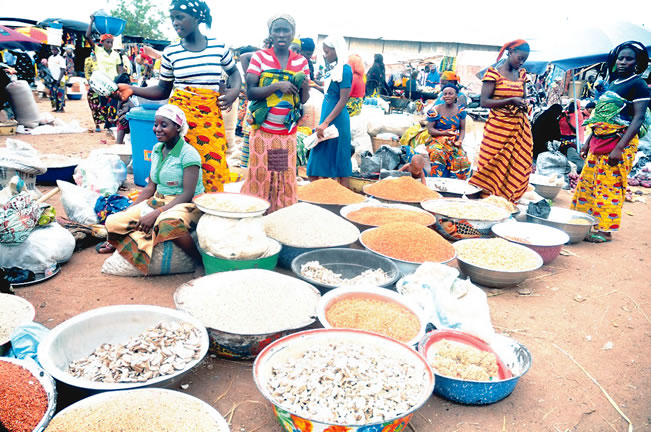A recent report released by Boston Consulting Group (BCG), has revealed that Nigeria and 44 other countries are exposed to the Ukraine and Russia war-induced food crisis.
The report titled: ‘The War in Ukraine and the Rush to Feed the World’ explained in detail the multiple direct and indirect effects of the turmoil in Ukraine on global food systems.
The BCG report, co-authored alongside Food Systems for the Future also provides 30 near and medium term solutions to help respond to the crisis and improve the resilience of global food systems.
It said the affected countries concentrated in Africa, South Asia and Latin America, were hotspots around the world as they were enduring some of the worst effects of the crisis.
The report stated that: “Nigeria and the other affected countries face severe levels of extreme poverty, compounded by the ongoing economic and social challenges associated with the COVID-19 pandemic.
“Additional factors worsening the food crisis identified in the report include heavy reliance on food imports, high import bills, high inflation, a high debt burden, climate risks, and civil unrest.
“An estimated 1.7 billion people — most of them in developing economies — could suffer severely increased food insecurity, higher energy prices, or greater debt burdens, according to the UN Task Team for the Global Crisis Response Group. Each of these individual factors adversely affects people’s ability to feed themselves.”
Managing Director and Partner at BCG Nigeria, Stefano Niavas, while commenting on the findings, said: “The impact of the Ukraine war on our food systems calls for critical and immediate review of our budgetary allocation.
“Currently, Nigeria spends over 27 times of its Agriculture allocation to service its debt. Compounded with the Ukraine war and the lingering challenges of COVID-19, the average debt-t-GDP ratio across the continent is expected to rise from 60 percent to 70 percent.
“To minimise the impact of the crisis on Nigeria’s food systems, the government and all critical stakeholders should ensure stabilising the rising cost of food and fertiliser by the provision of viable seedlings, supporting the growth of alternative nutritious grains, driving the adoption of innovative farm practices.”
Niavas further noted that:”The introduction of alternative sources of fertiliser will help reduce the country’s reliance on food imports.
“Together, Russia and Ukraine account for about 12 percent of the total food calories traded around the world, and both are critical exporters of key commodities such as wheat (28% of global trade) and sunflower oil (69%), according to the International Food Policy Institute.”
CEO and founder of Food Systems for the Future and a coauthor of the report, Ertharin Cousin, said: “While this crisis will impact all of us around the world in significant ways, low-income economies risk devastation and potential unrest.
“We are not just talking about the poorest of the poor, who are already suffering from hunger. We’re also talking about people who could recently afford a loaf of bread for their families and who now will literally be unable to do so,” he said.
Managing Director and partner at BCG and coauthor of the report, Shalini Unnikrishnan,noted that the current crisis requires, most importantly, a coordinated and immediate emergency humanitarian response by all stakeholders—governments, development institutions and banks, NGOS, and private companies—to meet the most pressing needs for humanitarian aid.
“They must provide not only food and financial support, but also the seeds, inputs, tools, and technical assistance needed to support in-country sustainable intensification and other crop substitution actions.
“Just as critically, we need a coordinated effort across all sectors to rethink and repair our food systems, making them more equitable, more resilient, and more responsive in times of great need.
“Avoiding more such crises will require diversifying food production across diets, supply chains, and markets, and addressing the indebtedness, economic inequities, and market distortions that have contributed to the current crisis.”
WATCH TOP VIDEOS FROM NIGERIAN TRIBUNE TV
- Relationship Hangout: Public vs Private Proposals – Which Truly Wins in Love?
- “No” Is a Complete Sentence: Why You Should Stop Feeling Guilty
- Relationship Hangout: Friendship Talk 2025 – How to Be a Good Friend & Big Questions on Friendship
- Police Overpower Armed Robbers in Ibadan After Fierce Struggle






